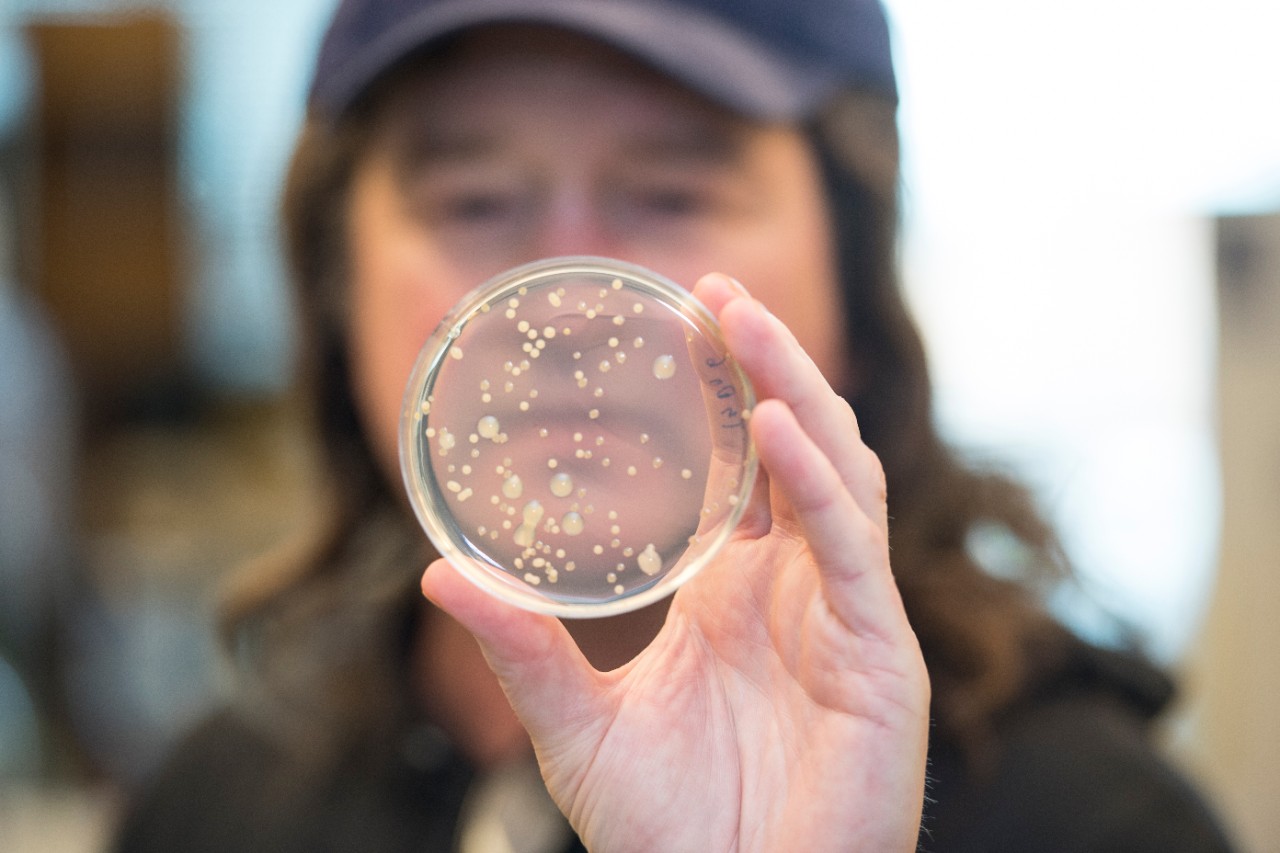
$1.2 million planned gift for research at UC College of Medicine
Local realtor passionate about treating cystic fibrosis
Cincinnati Realtor Julz Brown has created a $1.2 million planned gift to support research involving the treatment of pulmonary infections at the University of Cincinnati College of Medicine. The fund will be named after the late Mary Beth Comer, a family friend, who had cystic fibrosis (CF).
As a friend of the Comer family, Brown has been moved to see the deep family bond and continued dedication to local CF fundraising efforts. This sparked her interest in the disease and the desire to help find a treatment.
“While I did not know Mary Beth personally, I was deeply touched that her family has worked on fundraising efforts for more than 40 years,” she says. “It’s amazing when families pull together and this family is the epitome of heartwarming.”
She says it’s serendipitous to find someone working on innovative research in Cincinnati. Daniel Hassett, PhD, a professor in the UC College of Medicine’s Department of Molecular Genetics, Biochemistry, and Microbiology, has patented a potential treatment for pulmonary infection in patients with CF and chronic obstructive pulmonary disease (COPD). Finding his research both fascinating and hopeful, Brown says it made sense to help advance a timely treatment for a disease that impacted the Comer family.
I’m so impressed with Dr. Hassett’s work and I also know that science is impactful but also expensive. Not only does AB569 help those with CF, but other life-threatening conditions, making it an easy choice for me to support.
Julz Brown
“I’m at the point in my life where I can do something for someone else,” she says. “I think if 2020 showed us that we have to help each other.”
As a long-time resident of the university neighborhood, Brown has deep roots in Clifton and a strong affinity for UC. She notes that Mary Beth Comer was a UC graduate.
Hassett has developed and patented a novel antimicrobial drug called AB569 that is effective at killing antibiotic-resistant organisms (commonly referred to as “superbugs”). He’s made it his life’s goal to eradicate the bacteria that cause airway-related infections that occur with CF and COPD. His AB569 technology can also be used to treat wounds associated with burns, surgical incisions and diabetic skin ulcers, as well as problematic urinary tract infections. In March 2021, Arch Biopartners Inc., a Toronto-based publicly traded biotechnology company, announced that it entered into an exclusive agreement with UC to license patent claims for AB569.
“I’m so impressed with Dr. Hassett’s work and I also know that science is impactful but also expensive,” Brown says. “Not only does AB569 help those with CF, but other life-threatening conditions, making it an easy choice for me to support.”
Brown has set up a separate fund supporting Hassett’s research. Donations can be made online.
Featured image at top of Daniel Hassett/Colleen Kelley/UC Creative + Brand
Next, Now
With its focus on innovation and impact, Next, Now: The Campaign for Cincinnati is where ambition meets action. At the University of Cincinnati and UC Health, we’re driven by next; thinking bolder and dreaming bigger to create the tomorrow we envision, today. Learn more at nextnow.uc.edu.
Related Stories
2024 Daniel Drake Medals to be awarded April 27
April 24, 2024
The UC College of Medicine will award three people with 2024 Daniel Drake Medals April 27.
Local 12: Head injury survivor, doctor share importance of...
April 23, 2024
Local 12 spoke with patient Shane Shapiro and the University of Cincinnati's Laura Ngwenya about the importance of wearing a helmet following Shapiro's traumatic brain injury and recovery.
UC hires Dr. Gregory Postel as senior vice president of health...
April 23, 2024
UC Board of Trustees vote to hire Dr. Gregory Postel as senior vice president of health affairs and dean of UC College of Medicine.
